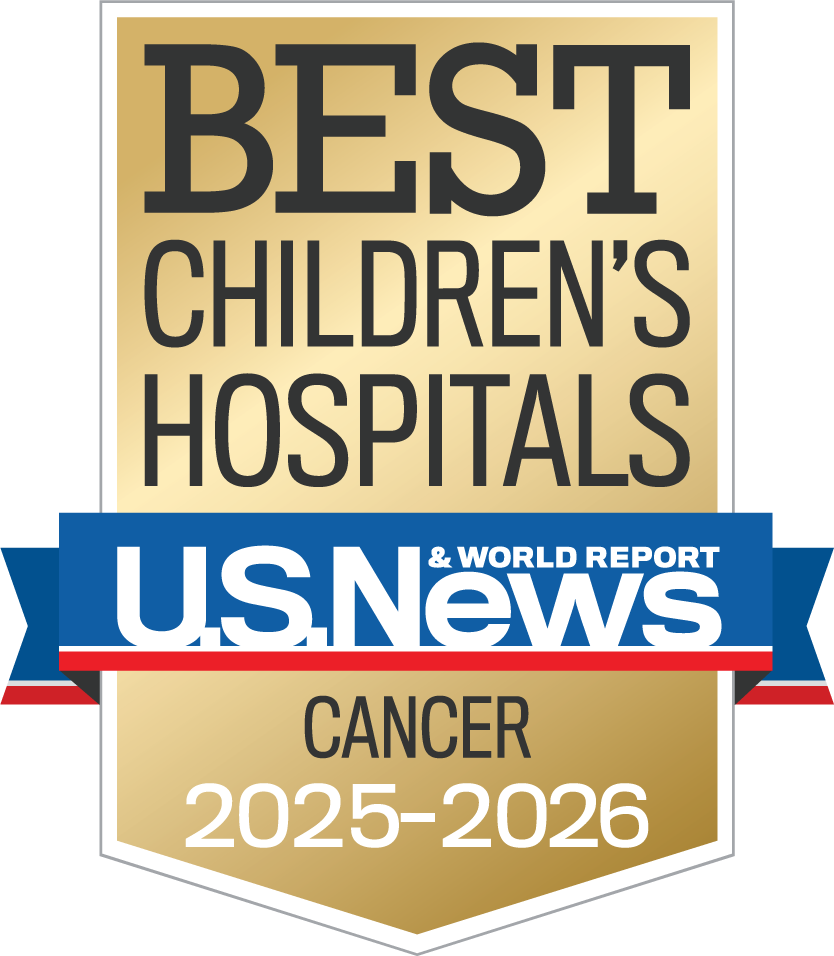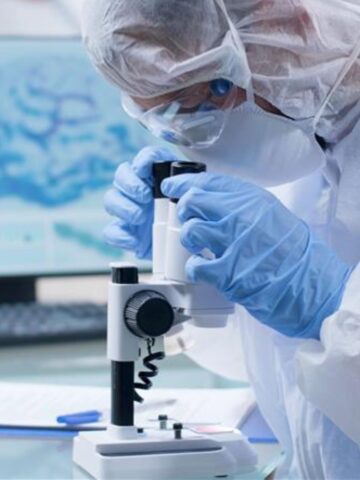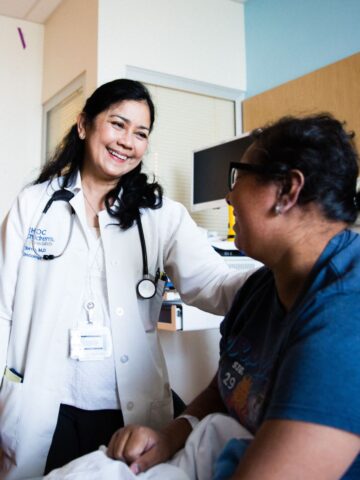CAR T-cell therapy for treating pediatric leukemias
Although childhood leukemia, the most common childhood cancer, is highly treatable, around 10%–15% of patients have treatment-resistant or relapsed leukemia. Recent advances in treatment including immunotherapies such as CAR T-cell therapy have spurred optimism.
However, around half of patients who initially go into remission after CAR T-cell therapy have their cancer return within a year. Another 10% don’t go into remission at all. Additionally, patients who relapse cannot undergo stem cell transplantation, an additional line of defense against cancer recurrence if they are not able to achieve remission prior to transplant.
New research at Children’s Hospital of Orange County (CHOC) seeks to discover the underlying reason for these different outcomes.
“Someone develops cancer due to a failure of their immune system, but not everyone responds to the immunotherapies that fix their immune system,” says Dr. Rishikesh Chavan, oncologist and director of the CHOC Stem Cell Transplant and Cellular Therapy program. “What could be different in these patients? Our hypothesis is that the proportion of regulatory T cells in the patients who relapse might be different from the proportion of regulatory T cells in the patients who respond.”
A prospective exploratory study about T cells (Tregs)
Dr. Chavan first became interested in the role of regulatory T cells (Tregs) after a young leukemia patient did not respond to immunotherapy.

“Even though she had a sibling who was a complete match as a stem cell donor, she could not proceed to transplant because she was not in remission,” Dr. Chavan says. “The hardest thing is when patients don’t make it, but that heartache makes us want to go back to the lab and study what it is in the immune system that is causing them not to respond.”
Dr. Chavan’s new study, “Role of regulatory T cells in predicting outcomes of stem cell transplantation,” examines Tregs levels in current CHOC leukemia patients who have had stem cell transplants. The current phase is observational only.
Evaluating CAR T cell therapy success rates
“We want to find out if there is a correlation between the proportion of regulatory T cells, NK [natural killer] cells and conventional T cells and outcomes,” Dr. Chavan says. “We are also looking at the cytokines that are correlated with these T cells and looking at whether we can identify a biomarker signature in terms of predicting which patients respond versus which patients relapse.”
The study currently has 11 patients enrolled, and Dr. Chavan hopes to eventually include a total of 30 patients.
“If we are successful in establishing a biomarker, the next phase would be to come up with an interventional strategy to modulate the host’s immune system to be able to change the patients from non-responders to responders,” Dr. Chavan says.
Looking beyond immunotherapy responses in leukemia treatment
While predicting — and ultimately preventing — relapse is the primary objective of the study, Dr. Chavan’s team is also assessing the role of Tregs in other aspects of leukemia treatment.
“One of the common complications of stem cell transplant is graft-versus-host disease,” Dr. Chavan says. “A secondary objective of the study will look at whether these biomarkers help us identify patients who are more likely to develop graft-versus-host disease [compared to those who are less likely to get it].”
Another aspect of the study will examine whether there’s a correlation in adverse outcomes in Hispanic patients based on different proportions of Tregs. This work dovetails with other CHOC researchers’ studies about disparities in treatment outcomes among young Hispanic patients with leukemia. These poor outcomes include more severe complications of treatment and lower overall survival rates.
“What has been previously shown among leukemia patients is that the patients of Hispanic origin or ethnicity tend to have poor outcomes compared to the patients from other ethnicities, and we don’t yet know why,” Dr. Chavan says.
The team also hopes to modify the study to investigate the gut microbiome along with the regulatory T cells.
“The whole study is designed to [examine] the host immune system, and by adding the gut microbiome, it might give us a clearer picture,” Dr. Chavan says. “It may also tell us if there is correlation or if there are differences between what we see in the gut microbiome and Tregs levels in the patients who relapse versus those who respond to treatment.”
Seeking long-term survival with T cell immunotherapies
If the observational study does successfully identify a cutoff — a proportion of Tregs versus NK cells at which patients respond to treatment — this could open the door to modifying patient immune systems prior to CAR T-cell therapy.
“Ideally, the next phase of the study would be an interventional study where you modify Tregs proportions to be able to make sure that the patients respond and have sustained remission,” Dr. Chavan says. “Another implication, if we identify a biomarker in the Treg proportions, is that it could be used to predict which patients are likely to relapse earlier, which means clinicians could intervene sooner.”
This study could also have implications in treating diseases beyond cancer, such as autoimmune conditions like inflammatory bowel disease and type 1 diabetes.
“The CHOC oncology team is at a tipping point in cellular therapy research,” Dr. Chavan says. “In alignment with the rest of the field, we are moving toward more precise, dynamic and individualized immunotherapies. I believe our trial will soon offer niche ways to personalize treatment for every patient. We not only want to send patients into remission but ensure they have long-term survival.”
Learn more about CHOC’s oncology services

CHOC Hospital was named one of the nation’s best children’s hospitals by U.S. News & World Report in its 2025-26 Best Children’s Hospitals rankings and ranked in the cancer specialty.




